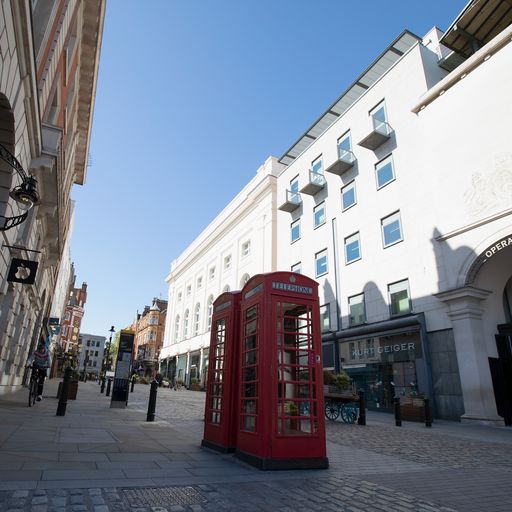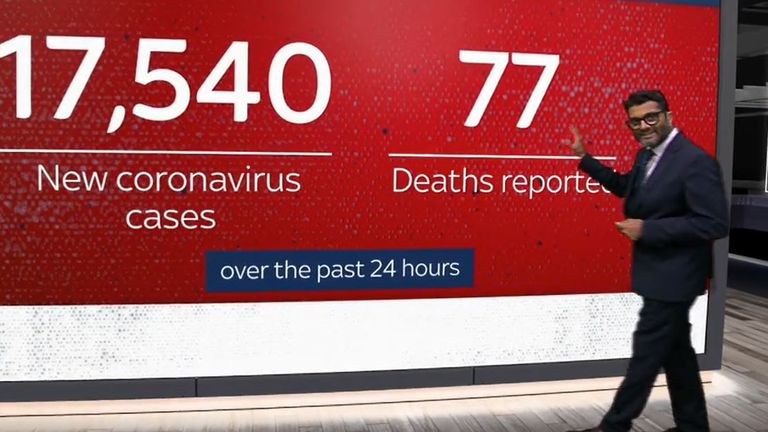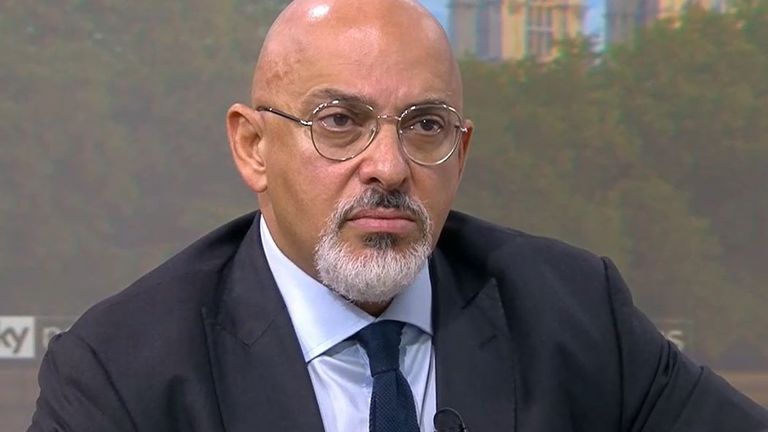Workers at businesses forced to shut due to stricter lockdown measures will have two-thirds of their salaries paid by the government.
Chancellor Rishi Sunak unveiled the expansion of the Job Support Scheme, which is a successor to the furlough scheme, saying: “It will provide a safety net for businesses across the UK who are required to temporarily close their doors, giving them the right support at the right time.”
Live updates on coronavirus from UK and around world
The government will pay employees who cannot work 67% of their salaries, up to £2,100 a month.
The scheme will come into force on 1 November and run for six months before being reviewed. Employees must be off work for a minimum of seven days to be eligible.
The chancellor added: “Throughout the crisis the driving force of our economic policy has not changed.
“I have always said that we will do whatever is necessary to protect jobs and livelihoods as the situation evolves.”
Cash grants to businesses which are forced to close will also be increased, with up to £3,000 per month payable every fortnight to help them with fixed costs.
It comes amid speculation that England will be carved into three different lockdown tiers next week, with millions of people facing tougher restrictions – particularly in the north – as the government tries to handle rising coronavirus cases.
The new rules are likely to see pubs, cafes and restaurants effectively shut down in the worst-hit places, similar to what has happened in Scotland, where alcohol sales are being restricted for 16 days from today.
Anneliese Dodds, Labour’s shadow chancellor, said: “The fact the chancellor is having to tear up his Winter Economic Plan before the autumn is out demonstrates the chaos and incompetence at the heart of government. His delay in delivering support has caused unnecessary anxiety and job losses.
“Even at this late stage, he still has no plan to support sectors that are currently unable to operate at full capacity.
“None of this was inevitable if the chancellor had just taken his fingers out of ears and listened to the warnings from Labour and others.”
Mayors from the north of England have said the action was a “start” but may not go far enough.
Greater Manchester mayor Andy Burnham, Mayor of North Tyne Jamie Driscoll, Mayor of Sheffield City Region Dan Jarvis and Mayor of Liverpool City Region Steve Rotheram said in a joint statement: “We are pleased that the government has listened and recognised that any new system of restrictions must come with a substantial package of financial support.
“What has been announced by the chancellor today is a start but, on first look, it would not appear to have gone far enough to prevent genuine hardship, job losses and business failure this winter.”
Confederation of British Industry director general Dame Carolyn Fairbairn said: “The chancellor’s more generous job support for those under strict restrictions should cushion the blow for the most affected and keep more people in work.
“But many firms, including pubs and restaurants, will still be hugely disappointed if they have to close their doors again after doing so much to keep customers and staff safe.”
Frances O’Grady, general secretary of the Trades Union Congress, said: “Firms which aren’t required to close but will still be hit by stricter local restrictions need a more generous short-time working scheme. And there needs to be extra help for self-employed people in local lockdown areas too.
“Nationally, industries like the arts, hospitality, retail and aviation face a long, tough winter. These sectors need targeted help. And we need proper investment to create good new jobs in the green tech of the future.”
:: Subscribe to the Daily podcast on Apple Podcasts, Google Podcasts, Spotify, Spreaker
Federation of Small Businesses national chairman Mike Cherry said: “We now need to look at what comes next in terms of further evolution of support mechanisms, especially for those who will not directly benefit from today’s announcement.
“They include those who have been forced to close but don’t occupy premises, as well as those who are being told to stay shut regardless of location – among them bulwarks of our night-time economies and event industries.
“While support is being more closely targeted at certain kinds of businesses, we must be alert to suffering right the way down supply chains.”
The chancellor announced a national furlough scheme in March, shortly after the country went into lockdown, in an effort to limit the spread of COVID-19.
The scheme began to wind down in August – when the ONS estimated 12% of employees were still using it.
Also among the schemes designed to shield workers from unemployment was Eat Out To Help Out – a government subsidy encouraging people to dine out in August.
However, despite its popularity, it appears to have had a smaller effect on the economy than hoped – August’s GDP grew by just 2.1%, well off analysts’ forecasts of 4.6% and still 9.2% below its February level.




